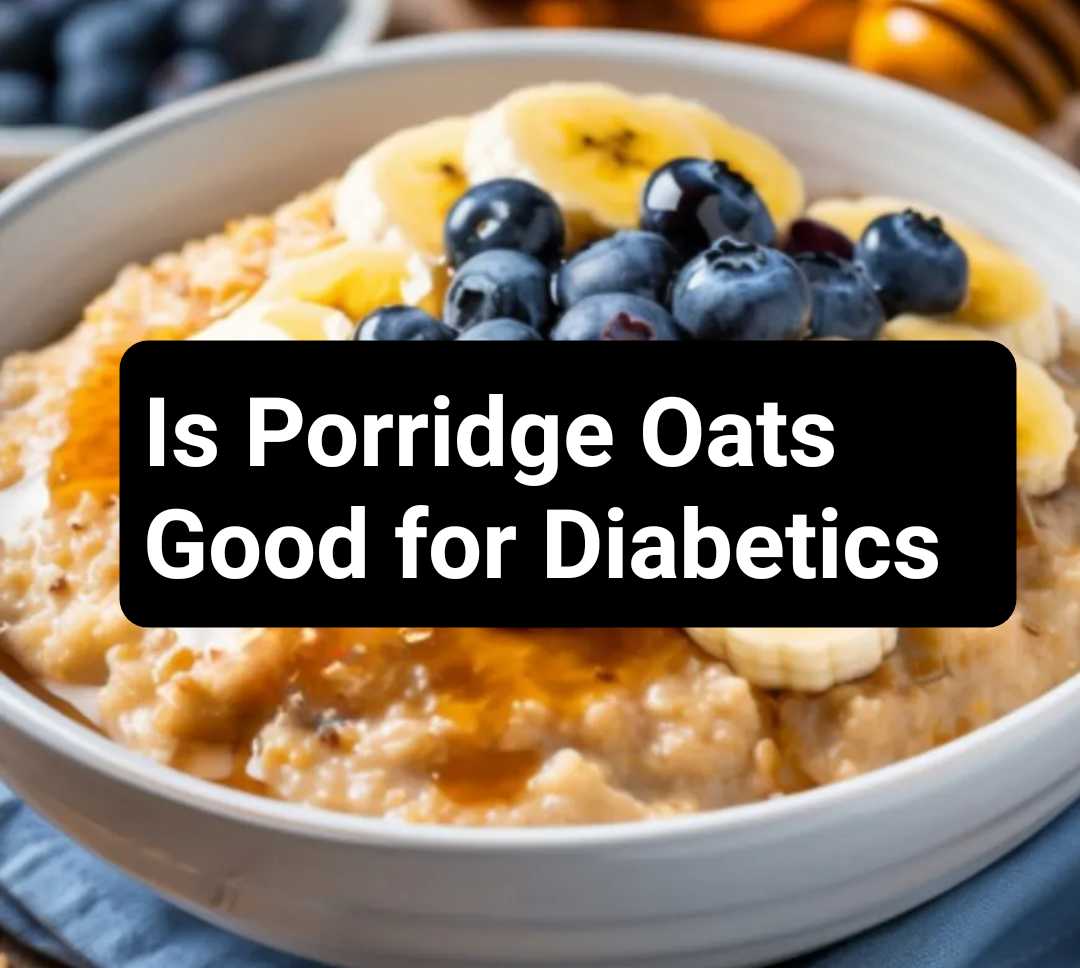Table of Contents
Is Porridge Oats Good for Diabetics?
Oats have long been a breakfast staple for those seeking a quick, hearty, and nutritious meal. As kids, many of us enjoyed sweetened oatmeal bowls topped with nuts and milk. Now, as adults navigating life with diabetes, the question arises: can porridge oats still fit into a healthy diet? Here’s everything you need to know about porridge oats and their suitability for diabetics.
Get your favorite Diabetics Cookbook here.
Why Are Porridge Oats So Popular?
Porridge oats are a versatile and nutritious breakfast option made from whole oats that have been flattened or lightly processed. Whether served hot or cold, oats are known for their rich nutrient profile, including fiber, phytonutrients, and vitamins. They provide slow-releasing energy, making them a favorite for people looking to stay full and energized throughout the day.
| Image | Product | Rating | Price |
Our Pick
1  | The Diabetic Cookbook and Meal PlanLearn the basics of type 2 diabetes, including how nutrition and lifestyle choices affect your blood sugar. |
10 |
$7.09
|
Runner-Up
2  | The Complete Diabetes CookbookVetted by a dietician and a doctor, these 400+ diabetic recipes maximize healthy ingredients and flavor while adhering to specific nutritional guidelines (10 grams of carbs to 1 gram of fiber—or better). |
9.5 |
$12.83
|
Household-Name
3  | Betty Crocker Diabetes CookbookDiscover delicious and healthful recipes for diabetics, along with the latest medical and nutrition information from the International Diabetes Center. |
9 |
$13.28
|
Types of Oats
Understanding the different types of oats can help you choose the best option for your health and dietary needs:
Whole Oats
Whole oats retain their bran, germ, and endosperm, making them the least processed form. They have a low glycemic index (GI), making them ideal for blood sugar management. They take the longest to cook but offer the most nutrients and the least impact on blood sugar.
Rolled Oats
Rolled oats are traditional oats that have had their inedible outer shell removed. They retain most of their fiber and nutrients and have a lower GI than processed oats. Cooking time: 30–45 minutes.
Steel-Cut Oats
Steel-cut oats are whole oats chopped into smaller pieces. They have a low GI (53) and retain much of their nutrients and fiber. Cooking time is slightly shorter than whole oats, but they take longer to cook than rolled oats.
Quick/Instant Oats
These oats are processed to cook quickly, but they lose much of their fiber and nutrients during processing. They have a higher GI (83), making them less suitable for diabetics. Cooking time: 3–5 minutes.
Are Porridge Oats Healthy?
Porridge oats, especially when made from whole or minimally processed oats, are among the most nutrient-dense grains. Here’s why:
Oats are rich in beta-glucans, a type of soluble fiber that supports gut health by promoting beneficial bacteria. Beta-glucans can also help reduce cholesterol levels and support colon health.
Whole oats have a GI of 53–57, meaning they cause a slower and more gradual rise in blood sugar. Instant oats, with a GI of 83, should be avoided by diabetics.
Oats contain avenanthramides, a group of antioxidants that reduce inflammation, improve blood flow, and lower the risk of heart disease.
While oats are naturally gluten-free, cross-contamination may occur during processing. Diabetics with gluten sensitivities should look for certified gluten-free oats.
The high fiber content in oats promotes satiety, helping to control appetite and reduce calorie intake. Studies have linked regular oat consumption to a lower risk of Type 2 diabetes and obesity.
Are Porridge Oats Good for Diabetics?
Yes, porridge oats, especially made with whole or steel-cut oats, are an excellent choice for diabetics. Here’s why:
Whole and steel-cut oats have a low GI, meaning they release energy slowly and help maintain stable blood sugar levels.
The beta-glucans in oats slow digestion and glucose absorption, reducing post-meal blood sugar spikes.
Oats provide essential nutrients like vitamins, minerals, and antioxidants, which support overall health.
Porridge oats can be prepared in various ways—hot, cold, or even as overnight oats. Add healthy toppings like nuts, seeds, and fresh berries for a nutrient-packed meal.
Tips for Diabetics
Choose whole oats or steel-cut oats over instant or quick oats to minimize blood sugar spikes. Avoid adding sugars or syrups; instead, sweeten your oats naturally with cinnamon, nutmeg, or a small portion of fresh fruit. Pair oats with a source of protein or healthy fat, like Greek yogurt, almond butter, or chia seeds, to further slow glucose absorption.
Final Thoughts
Porridge oats are a diabetic-friendly breakfast option, offering a wealth of nutrients, a low glycemic index, and long-lasting energy. While instant oats may not be the best choice due to their higher GI and reduced nutrient content, whole and steel-cut oats are excellent for blood sugar control and overall health. When paired with nutrient-dense toppings and consumed in moderation, porridge oats can be a staple in a diabetic-friendly diet. Enjoy your oats in creative ways, and feel confident that they can support your journey to better health.

